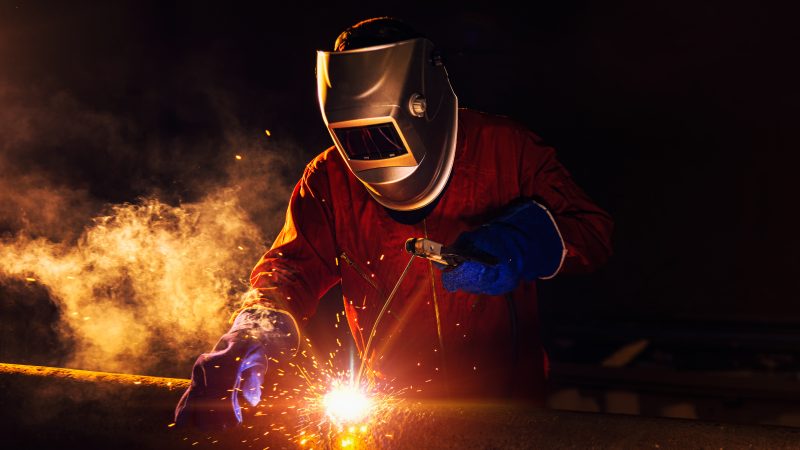
Our steel industry has struggled since Thatcher’s privatisation in 1988. Once employing 186,000 workers in 1981, now thirty years on only 39,500 steel jobs remain. With Port Talbot’s blast furnaces offline until 2027, and Jingye refusing the government rescue package for Scunthorpe’s works, the prognosis was bleak even before Trump slapped a 25% tariff on UK steel.
It is right that Rachel Reeves is considering nationalising British Steel so that we can safeguard jobs and domestic production. In fact, it is vital that she does. Steel is a keystone of our economy. Far too important to be left to the market and the inevitable dismantling that would ensue.
We will continue to need steel long into the future. To sustain our manufacturing, to build new infrastructure, and to enable our transition to net zero. With the environmental cost of imported steel being far greater than steel produced domestically, there is no route to net zero without a sustainable domestic steel industry.
That is why it is absurd that our economy does not properly plan for steel production and usage. In 2023 net imports for steel stood at 4.6 million tonnes, with the then Tory government allowing billions to be spent importing steel—produced with higher emissions, and even more additional emissions through shipping—and to the detriment of our steelworkers.
It is a false economy that does not keep steel production in the UK, knowing full well that we will continue to need it and—with the right investment—that it can be the launchpad of a wider industrial revival. The current managed decline is the result of the decision of a government that did not care for steel communities’ concerns.
‘Looming job losses are a looming catastrophe for communities’
Labour knows better. We remember the devastation deindustrialisation inflicted on places like Sheffield, and the continuing impact of Thatcherism on our communities. Researchers have suggested that the ‘destruction of Britain’s industrial base and all that has flowed from it’ was a more definitive event in British economic history than the 2008 financial crash.
The Co-operative Party has called for communities to be central to the government’s response to the trade war. General Secretary Joe Fortune said that the tariffs are an opportunity for a ‘new economic settlement for communities.’ He is right. We must think first and foremost about how tariffs will impact communities in places like Scunthorpe, Port Talbot, and Sheffield, and let that reality shape our response.
We know that the 2,800 jobs threatened by Tata in Port Talbot, and the 2,700 jobs at risk in Scunthorpe, should not be reduced to numbers on a balance sheet. They are a looming catastrophe for communities.
‘Members and voters want to see ambition and action’
In 2023, Jonathan Reynolds said that a Labour government would stand with our steelworkers and ‘keep well-paid steel jobs in the UK for decades to come’. We must not sit idly by as Trump’s tariffs tank whole towns. It is time we make good on our promise.
We must nationalise British Steel and all UK steelworks. We must also deliver the public investment they need to increase capacity, investing both in jobs and communities, and also in our long-term economic future. After decades of reckless short-termism and the systematic neglect of UK steel, we can instead plan for our whole steel system to survive and thrive.
We can make Port Talbot’s blast furnaces operational again while speeding up its electric arc furnace. We can retain Scunthorpe steelworks and increase activity. We can change procurement rules so that public contracts can only use domestic steel.
Members’ and voters’ confidence in the government is stagnating because they want to see ambition and action. Nationalisation is a unifying policy across the party: Blue Labour MP Jonathan Hinder has backed calls to renationalise British Steel; Unite the Union’s Workers’ Plan for Steel called on the party to take a public stake in our steel industry. Public ownership continues to have broad popular appeal.
Voters are currently seeing Nigel Farage try to pretend he is more Labour than the Labour Party, as he backs calls for nationalisation. Voters remember a Conservative government nationalising Sheffield Forgemasters in 2021. They know that securing common ownership for the workers is our party’s raison d’être—and then they look on in confusion while a Labour government dithers,delays, and denies this reason for being.
Steelworkers are owed a thriving domestic steel industry. Entire communities, as well as our climate’s future, depend on it. This Labour government must renationalise UK steel.
For more from LabourList, subscribe to our daily newsletter roundup of all things Labour – and follow us on Bluesky, WhatsApp, Threads, X or Facebook .
- SHARE: If you have anything to share that we should be looking into or publishing about this story – or any other topic involving Labour– contact us (strictly anonymously if you wish) at [email protected].
- SUBSCRIBE: Sign up to LabourList’s morning email here for the best briefing on everything Labour, every weekday morning.
- DONATE: If you value our work, please chip in a few pounds a week and become one of our supporters, helping sustain and expand our coverage.
- PARTNER: If you or your organisation might be interested in partnering with us on sponsored events or projects, email [email protected].
- ADVERTISE: If your organisation would like to advertise or run sponsored pieces on LabourList‘s daily newsletter or website, contact our exclusive ad partners Total Politics at [email protected].





More from LabourList
Almost half of Labour members oppose plans to restrict jury trials, poll finds
‘How Labour can finally fix Britain’s 5G problem’
‘The University of the Air – celebrating 60 years of Harold Wilson and Jennie Lee’s vision’